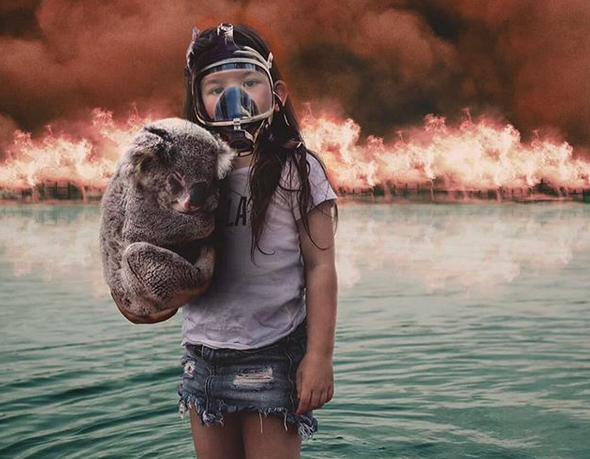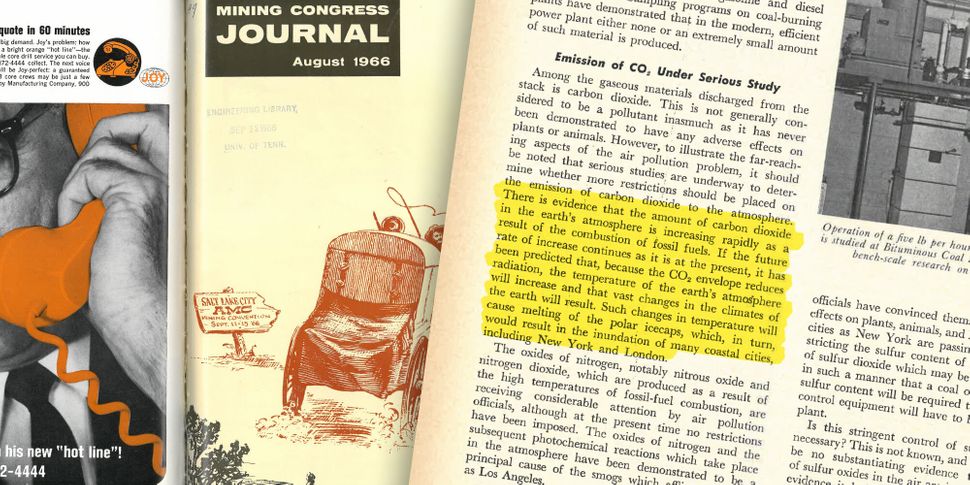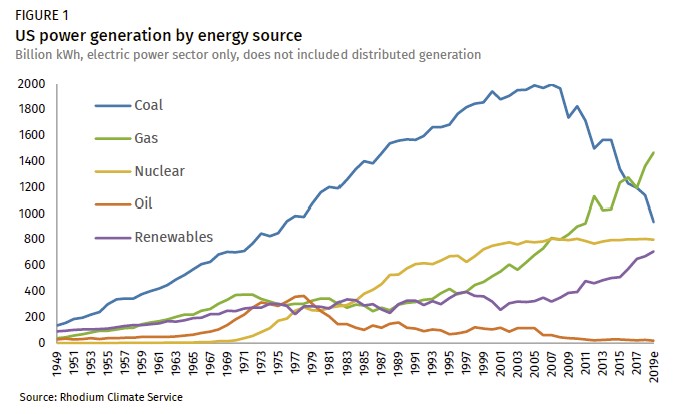Coal and Koalas

The Australian bushfires tell us much about where we are in climate breakdown and responses to it in the developed world. In an article in The Atlantic, Bianca Nogrady, a writer based in the Blue Mountains asks: “How Long Will Australia Be Livable?”
“Australians pride themselves on being battlers, on facing down terrible odds and triumphing against whatever this land of droughts and flooding rains—and bushfires—can throw at us. Yet one of the single most defining moments in modern Australian nationhood was actually a retreat. In one of the greatest military-campaign failures of World War I, the Australian and New Zealand Army Corps—the ANZACs—staged an ingenious escape from the shores of Gallipoli in 1915 after a bitter, futile eight-month battle with Ottoman forces.”
“This is our Gallipoli; this is our bushfire Gallipoli,” says David Bowman, a professor of environmental change biology at the University of Tasmania.
The facts about the crisis are stark.
The bushfires have burned in every state, have claimed at least 24 lives, have destroyed nearly 1,800 homes, and have turned more than 8.4 million hectares of land into charcoal. On January 4, 2020, western Sydney became one of the hottest places on the planet, at 120 degrees Fahrenheit (48.9 degrees Celsius).
“That’s uninhabitable; you can’t live in that,” one local said.
The Sydney News reports:
“Near 50C Heat in Sydney : Flames as high as 50 metres in Australian Bushfire Hell” and reports “Black Saturday” – “Saturday is turning out to be completely devastating in Australia. Massive fire fronts are burning from vast inland bush areas right to the Ocean south of Sydney. Towns are covered in thick smoke, as daytime becomes night.”
In an echo of the Gallipoli retreat, thousands had to be rescued from beaches by the Australian navy and air force.
The tragedy exposes several strands of climate breakdown.
First – Australia is an extreme first world country, a colonial experiment of exploitation where extraction of natural resources and imperialism go hand in hand – they are baked into the Australian mindset. This has very specific consequences: by displacing indigenous people Australia has not only engaged in ethnic cleansing but lost land and place knowledge.
Secondly, the political establishment is in deep denial.
Only a month ago Prime Minister Scott Morrison has argued there is no direct link between Australia’s greenhouse gas emissions and the severity of fires ravaging the continent, even suggesting Australia could increase its emissions without making the current fire season worse.
He’s continued to double-down.
Under pressure due to a record season of early bushfires and the accusation by a coalition of former fire chiefs that the government has avoided the issue of climate change, Morrison said on Thursday there was no “credible scientific evidence” that cutting Australia’s emissions could reduce the severity of bushfires.
He even argued: “the suggestion that any way shape or form that Australia, accountable for 1.3% of the world’s emissions, that the individual actions of Australia are impacting directly on specific fire events, whether it’s here or anywhere else in the world, that doesn’t bear up to credible scientific evidence either”.
He echoed the arguments of some Scottish nationalists who are argue that stopping North Sea oil exploitation is meaningless because of Scotland’s size, saying:
“But I think to suggest that at just 1.3% of emissions, that Australia doing something more or less would change the fire outcome this season – I don’t think that stands up to any credible scientific evidence at all.”
Third, coal is at the heart of this story and this tragedy.
Katharine Murphy, an award-wining Australian journalist reported on the moment when – in 2017 – Morrison then Treasurer – brought a lump of coal to Question Time:
“There is no way you can write the sentence, “The treasurer of Australia, Scott Morrison, came to question time with a lump of coal on Thursday,” and have that sentence seem anything other than the ravings of a psychedelic trip, so let’s just say it and be done with it.
Scott Morrison brought coal into the House of Representatives. A nice big hunk of black coal, kindly supplied by the Minerals Council of Australia.
“This is coal,” the treasurer said triumphantly, brandishing the trophy as if he’d just stumbled across an exotic species previously thought to be extinct.
Morrison represents not just old-school reactionary denialism but something worse. It’s not just climate inaction but an all-out culture war on environmentalists.
In November, while the fires raged, the Deputy Prime Minister Michael McCormack dismissed climate change as the concerns of “inner-city raving lunatics.”
A new report from the University of New South Wales concludes: that coal from the six biggest miners in Australia produces more emissions than entire economy.
“In the latest report to estimate the role fossil fuel businesses play in driving the climate crisis, researchers from the University of New South Wales calculated the total emissions from the coal and gas produced by Australia’s top carbon companies, from extraction to the resources being burned for energy, mostly overseas.
Revealed: the 20 firms behind a third of all carbon emissions“They found the top six coal producers – BHP Billiton, Glencore, Yancoal, Peabody, Anglo American and Whitehaven – were in 2018 linked to 551m tonnes of carbon dioxide released into the atmosphere. Total emissions from all activity within Australia were 534m tonnes.”
Yet, as Lizzie O’Shea writes for the Jacobin:
“Politicians have been permitted to peddle conspiracy theories about environmentalists without being meaningfully held to account. Fire mitigation work has been subjected to funding cuts, and the practical knowledge of traditional Aboriginal approaches to fire and land management — which boast a track record of effectiveness for at least 60,000 years — have been ignored.”
“In all this, the Australian Labor Party (ALP) has been weak, and at times complicit. Though it formally speaks the language of climate science, and recognizes the damage that man-made climate change has wrought, it simultaneously equivocated on its support of the notorious Adani coal mine in Queensland. If built, the Adani Carmichael mine would be the largest in Australia, slurping up 12 billion litres of water annually to produce coal that, when burned, will generate more emissions than many countries do in a year.”
She concludes more positively:
“It is possible to shift politics in favor of sustainability and against a conservative populism.”
“In recent days, Morrison has bowed to public pressure and cancelled a planned trip to India, where he was expected to discuss our significant coal exports to the subcontinent. This cancellation is the direct result of the sustained pressure being applied from an angry public.”
“A just transition with the support of the union movement can help to build a red-green alliance from the grassroots up. Under capitalism, the gains from climate change are privatized while the costs are socialized.””
Now is the moment to push for the adoption of a moratorium on coal and gas, coupled with an investment in communities that will experience the economic consequences.”
The reality is that climate denialism has been rife in Australian politics for decades.
According to CJ Werleman: “For nearly two decades, Australia’s conservative governance – the Liberal Party – has made climate change denial party orthodoxy, with the country’s former Prime Minister Tony Abbott branding the science behind it as “absolute crap”.
The Murdoch-owned Australian is at the heart of a nexus of climate denying media that props up the right-wing political establishment.
As Werleman points out “Since 2011, mining and energy corporations have donated $8.4 million to the conservative coalition’s state and federal branches.”
Madeline Peltz outlined the extent of the Murdoch impact. She writes: “A recent segment from the Australian Broadcasting Corporation rounded up examples of the climate denial pushed by conservative pundits in the Australian media, most of whom work for outlets owned by News Corp. For example, Peter Gleeson, a commentator at Sky News Australia and a columnist at The Courier-Mail, attacked a former fire chief who connected the fires to climate change as having “joined a cult” and “been brainwashed.” Sky News Australia host Peta Credlin not only denied the role of climate change in the fires, but also claimed that “there is no doubt … that two decades-plus of climate change activism is making them worse.” Sky News Australia host Chris Kenny called the debate about the role of climate change in the fires “dumb,” “reckless,” and “offensive.”
As Carbon Brief outlines the media coverage of the catastrophe looked very different inside Australian and beyond it.
Fourth, industry knowledge of climate change realities decades ahead of general public awareness puts their actions (and disinformation) into a new light.
“Exxon knew.” Thanks to the work of activists and climate journalists, those two words have become part of the lexicon of climate change in recent years. As DeSmog has recorded investigations revealed the extent to which Big Oil were aware of the danger of rising greenhouse gas emissions even as they smeared the work of scientists.
But the coal industry knew, too — as early as 1966, a newly unearthed journal shows.

Elan Young has the story at the Huffington Post:
“In August 2019, Chris Cherry, a professor in the Department of Civil and Environmental Engineering at the University of Tennessee, Knoxville was drawn to a 1966 copy of the industry publication Mining Congress Journal; his father-in-law had been in the industry and he thought it might be an interesting memento. Cherry flipped it open to a passage from James R. Garvey, who was the president of Bituminous Coal Research Inc., a now-defunct coal mining and processing research organization.”
“There is evidence that the amount of carbon dioxide in the earth’s atmosphere is increasing rapidly as a result of the combustion of fossil fuels,” wrote Garvey. “If the future rate of increase continues as it is at the present, it has been predicted that, because the CO2 envelope reduces radiation, the temperature of the earth’s atmosphere will increase and that vast changes in the climates of the earth will result.”
“Such changes in temperature will cause melting of the polar icecaps, which, in turn, would result in the inundation of many coastal cities, including New York and London,” he continued.
Yet as recently as 2015, Peabody Energy argued that carbon dioxide was a “benign gas essential for all life.” Peabody Energy is the largest private-sector coal company in the world and the largest producer of coal in the U.S.
“While the benefits of carbon dioxide are proven, the alleged risks of climate change are contrary to observed data, are based on admitted speculation, and lack adequate scientific basis,” the company wrote in a letter that year to the White House Council on Environmental Quality.
At the heart of Big Coal’s denial campaign was Fred Palmer, Peabody’s senior vice president of government relations from 2001 to 2015.
Peabody’s denialism would soon morph – as it became unsustainable to long-suppressed scrutiny – into variant arguments for “clean coal”.
If coal and mining are at the very heart of Australia’s psycho-geography: heroic, conquering, masculine, they are also at the heart of the extractivism and blind exploitation that is also at the heart of our ecological crisis, and its colonialism is no accident.
Yet all is not dark.
El País reports:
“Spain has taken just one year to reach a goal that was expected to require a decade. The government had predicted that by 2030 coal would no longer be used in power plants to generate electricity, yet this objective was all but achieved last year. The country has dramatically reduced its reliance on coal-fired power, and as a direct result, carbon dioxide (CO2) emissions from electricity generation fell 33.3% in 2019.”
Last year coal-powered thermal plants contributed less than 5% of all electricity generated in Spain – 85.6% less than in 2002, when coal power was at its peak.
Remarkably too, even coal-mad ole USA is shifting rapidly away from coal:

These examples show how it is possible to rapidly move away from coal dependency.
Finally, some of the imagery and symbolism from mining is transposed in crisis to the firefighters. Both are hyper-masculine, heroic and nature-conquering. But another aspect of this is the iconography of Australia’s animals. Koalas are the new Polar bears.
Whilst Polar bears for years have been the environmental movement’s cuddly standard-bearer, neatly re-positioning the climate catastrophe into a crisis for animals elsewhere, so too do very cuddly-looking Koalas.
But focusing on these animals is some odd behaviour.
There’s a new meme of Koala adoption “What do you think of the koalas my friends and I have adopted?”
The climate crisis – a systemic failure of our economic system – is re-packaged as an issue of animal welfare. If only we can get water to the singed koala – all will be well.
Saving individual animals is much more manageable than creating a viable economy and facing the reality we are in.

Finally, the catastrophe exhibits the very adaptability that may be our downfall. In Sydney we see people in orange glow drinking beer on the beach with face masks to cope with the fumes.
A few years ago images circulated of Beijing so polluted the sunrise was broadcast on a giant screen instead. And here, from Katoomba, in New South Wales, the news journalist Tom Lowrey tweets:
“The smoke is so thick in Katoomba tourists are opting for photos with billboards, rather than the Three Sisters themselves.”

If we can live with a simulacrum of places then we are over the edge into a new reality. Maybe we will choose that rather than change ourselves or demand system-change, we’ll just take travel the world taking pictures of what earth used to look like?
The Australian experience puts the relationship between colonialism and climate breakdown at the forefront of the global debate, and reminds us of the indigenous movements role in the fight for climate justice. It also speaks to our extreme alienation from the natural world and is “shocking” precisely because it is happening to “people like us” when the global south has been suffering for years without catching our gaze.

The fact that people in Australia were still going on holiday whilst their surroundings burned should tell you everything you need to know….
No they were on holiday and had to evacuate the coastal holiday areas it is the middle of summer holidays season and many people are off work. The Prime Minister was the one who sneaked off to Hawaii without telling anyone.
Pretty comprehensive take, DS. Cheers. The whole thing is at least surreal, if not definitely hellish a’ thegither
Those on the political right will only accept climate change when the cost to fix infrastructure damage outweighs the income from burning fossil fuels.
By which time, unfortunately,it will be too late.
We’re living with the consequences of our monetary/financial system, a system that (basically by necessity) pours newly created money into corporate monopolies and arms manufacturing, resource extraction and property markets, and starves financial support from meaningful innovation, public resources, small and medium sized businesses and environmental management.
The U.S now cannot allow meaningful restructuring of the financial system or the lose of the dollar as “global reserve currency” (the currency that most goods and services are traded in between most countries in the world).
This is why, what is going on in Iraq and Iran, is directly related to the issues highlight by Mike in the article above.
While we live with the consequences of the current financial system, the US (and its NATO henchmen) will (must!) do anything and everything to extended the Wall Street/City of London/Crown dependencies and oversea territories shadow banking network global ponsi scheme. Iran, North Korea, Russia, China, Venezuela (Iraq under Saddam, Libya under Gaddafi) all sit outside the dollar zone to some degree or other or pose a threat to it!
The climate “crisis” is a symptom (as are homelessness, increasing inequality, low wages, out of control house prices, AirBnB take over, hollowing of our cities, the multi year smearing of Corbyn who had a well thought through policy agenda to start to restructure the U.K.s financial system) of an institutional and regulatory structural framework that we all live with and few understand,
Let’s not waste more years lobbying our political elites (who are beholden to the bankers) to tweak around the margins. Let’s start creating more co-ops, taking over councils, using resources to connect people with new media (rather than just publishing article after article, let’s get a communication strategy together and put as much effort into it as cresting content etc etc). We need a vision on and strategy. Not fear and despair.
Australia will recover. Life will go on. Maybe the seas will boil. Eventually this planet will cease to exist with, our without human aid. Let’s focus on doing what we actually can do.
Interesting comment about North Sea oil. Not only the Greens but the Tory britnats and co are saying we should stop producing oil.
For the britnats it is not a concern over the planet but a means to remove the revenue argument for independence. Billions upon billions has went to Westminster but a hint of Scotland controlling its resources and it is a bad thing and should be stopped. A planned programme of extraction is the way forward. Making oil last longer makes sense not only from a financial perspective but also as an aid to transition to other. It is a responsible position to take. Scotland has done more than any to improve base energy from renewable energy be it from hydro, wind turbines and other means. Conservation by improved insulation and stricter building control standards would also assist. Reforestation and protection of peat lands all have a part to -lay.
Some of the Greens of course think we should all take to cycling like the Dutch. They haven’t noticed that we have mountains, wind & rain in abundance! Likewise their hatred of cars and aircraft seems to be at variance of what some of our island communities would say is essential as they don’t have the trams. Trains and buses of Edinburgh for example. Ferry services are problematic as we know.
So a planned policy for the country must still include oil and extraction of resources.
Well said Hamish. Scotland remains without any benefit from its oil and the pattern of exploitation of our resources will continue under our colonial status.
Oil extraction creates climate breakdown wether its wrapped in a Union Jack or a Saltire.
Will not be long till they run out of wood, for building, and will have to buy ,in at a extreme cost
Excellent article, but as our Prime Minister says, now is not the time for politics. The union movement agrees with him: I have today received an email from Sally McManus, ACTU Secretary, urging us to become volunteers!
Indeed, these are troubling times and there is certainly a need for people to step up and volunteer. However, we pay insurance premiums for building and contents to cover the costs of various tragedies and that surely includes payment of wages for workers involved in clean-ups and rebuilds. The insurance industry will surely be stepping up to the government for money to cover their costs . . . hard to imagine that they will be able to cover the payouts.
None of this should be surprising to the governments nor the insurance industry. The Garnaut Report of 2009 reported that catastrophic fires would eventuate by the summer of 2010 without action to stop/reverse climate change. The report was ignored and the mining lobby continued and continues with business as usual.
I have suggested to our union movement that NOW is indeed the time for politics. The money being donated by super stars and most recently by a mining magnate demonstrates the clear capacity of the wealthy to contribute to society. Claiming kudos for same is, at best, a poor show.
I re-iterate, I’m fine with volunteers and volunteering and know that volunteering can and does bring rewards to many, including myself. However, governments’ reliance on volunteering is wrong. Surely?
Excellent piece, Mike. Just back from Melbourne now and astonished at how clear the air seems – in Edinburgh! After weeks of having to monitor the air quality, to see if it was ‘hazardous’, ‘poor’ or ‘good’ enough to leave the house, astonished at the lack of real opposition to the climate denialists running Australia and the Australian media, what can I say? The future is already here.
If people are happy to have a selfie in front of a billboard, rather than the actual view, why not go the whole hog?
A series of billboards could be erected in city centres showing all the “top” destinations worldwide. People could (for a small fee) stand in front of them for a selfie with family & friends. Result? Massive saving of money for the holiday maker and reduction in CO2 from aircraft.
Better still, just develop an app that allows us a screenshot of ourselves in, say; Mach Pichu, Edinburgh Castle, Ayers Rock, Niagra Falls etc. We could post the photo on our various “timelines”, along with the strap-line; “I saved £2.5k and 1.5Tonnes of CO2 emmisions by not actually travelling here for this selfie”
This is an excellent idea